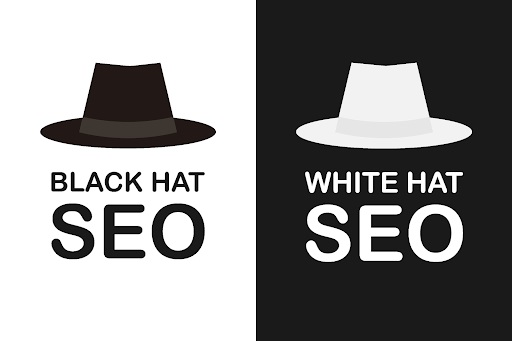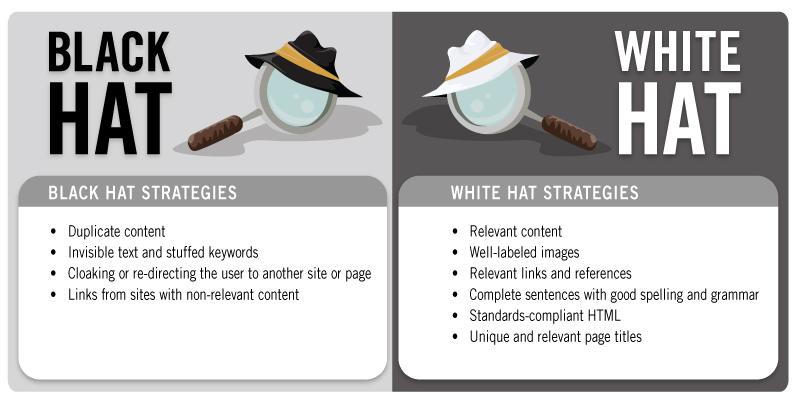
The Dichotomy of SEO: Understanding White and Black Hat Technique
Search Engine Optimization (SEO) is a critical tool in the digital marketing arsenal. It involves optimizing a website or content to improve its visibility in search engine results pages (SERPs). Understanding SEO is fundamental for anyone looking to enhance their online presence. It encompasses various techniques and strategies aimed at improving website ranking, driving organic traffic, and ultimately achieving business goals. SEO’s effectiveness lies in understanding and adhering to search engine algorithms and guidelines.
What is White Hat SEO?
White Hat SEO refers to the use of optimization strategies that focus on a human audience as opposed to search engines and completely follow search engine rules and policies. These techniques are designed to create a sustainable online business with a solid foundation and long-term growth. White Hat SEO includes tactics like creating high-quality content, optimizing website loading times, mobile-friendliness, making sites easy to navigate, and building quality inbound links.
The philosophy behind White Hat SEO is to provide value to the audience. It involves thorough keyword research, ensuring that content answers the queries and needs of users. It also emphasizes the importance of good user experience, which is a significant ranking factor for search engines like Google.
White Hat SEO is a long-term investment. While it might take longer to see results, it builds lasting growth and minimizes the risk of being penalized by search engines.
What is Black Hat SEO?
Black Hat SEO stands in contrast to White Hat techniques. It involves practices that attempt to spam or trick search engines to gain higher rankings. These tactics don’t follow search engine guidelines and often provide a poor user experience.
Common Black Hat SEO techniques include keyword stuffing, cloaking, using private link networks, and content automation. These methods are designed to manipulate search engine algorithms rather than provide value to human users.
Is Black Hat SEO Really That Bad?
The negativity surrounding Black Hat SEO stems from its unethical approach and the potential risks it carries. Websites using Black Hat techniques can face severe penalties from search engines, including reduced rankings or even complete de-indexing.
Furthermore, Black Hat SEO can damage a brand’s reputation. Online users today are savvy; they can often recognize when they’re being deceived, leading to a loss of trust in the brand.
Despite the potential short-term gains, Black Hat SEO is generally considered a harmful practice for any sustainable online business strategy.
Advice and Tips on Effective SEO Practices
- Focus on creating high-quality, engaging, and original content that provides value to your readers.
- Ensure your website is user-friendly, with fast loading times and mobile optimization.
- Build organic backlinks from reputable websites in your industry.
- Use keywords effectively and contextually. Avoid overstuffing and make sure they align with the user’s search intent.
- Regularly update your website content and keep abreast of the latest SEO trends and algorithm changes.

Emerging Trends in SEO
SEO is an ever-evolving field. Recent trends include the growing importance of voice search optimization, the emphasis on Artificial Intelligence in search algorithms, and the role of user experience as a key ranking factor. Adapting to these trends is crucial for staying relevant and competitive in the digital space.
Additionally, the integration of SEO with other digital marketing strategies like social media and content marketing is becoming increasingly important for a holistic online presence.
Conclusion: Is SEO Worth Your Attention?
In conclusion, understanding and implementing effective SEO practices, particularly White Hat techniques, is undoubtedly worth the attention of any business or individual looking to succeed online. While SEO can be complex and requires ongoing effort, the long-term benefits it offers in terms of visibility, traffic, and credibility make it an indispensable part of any digital marketing strategy.
